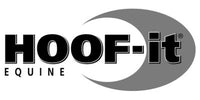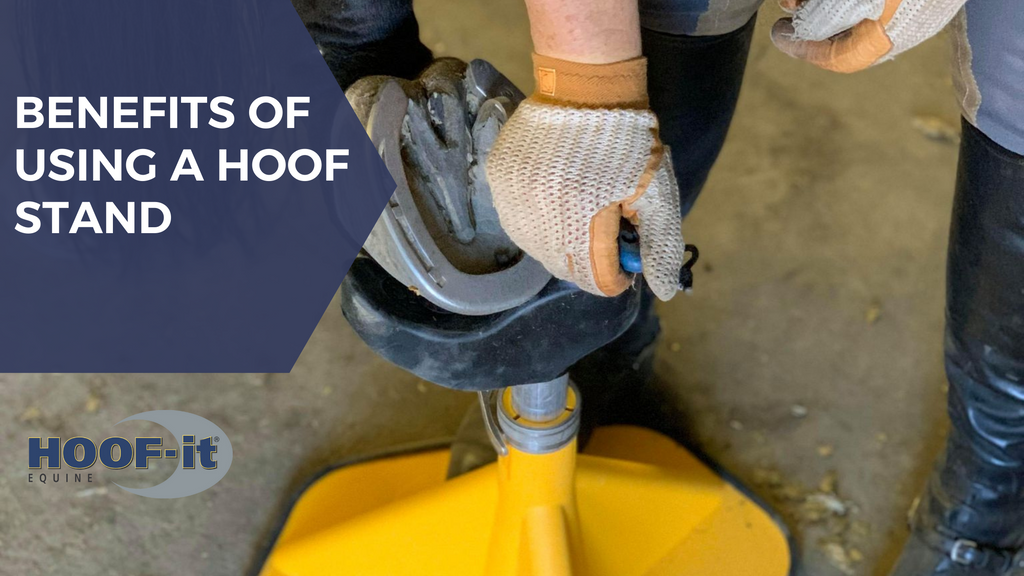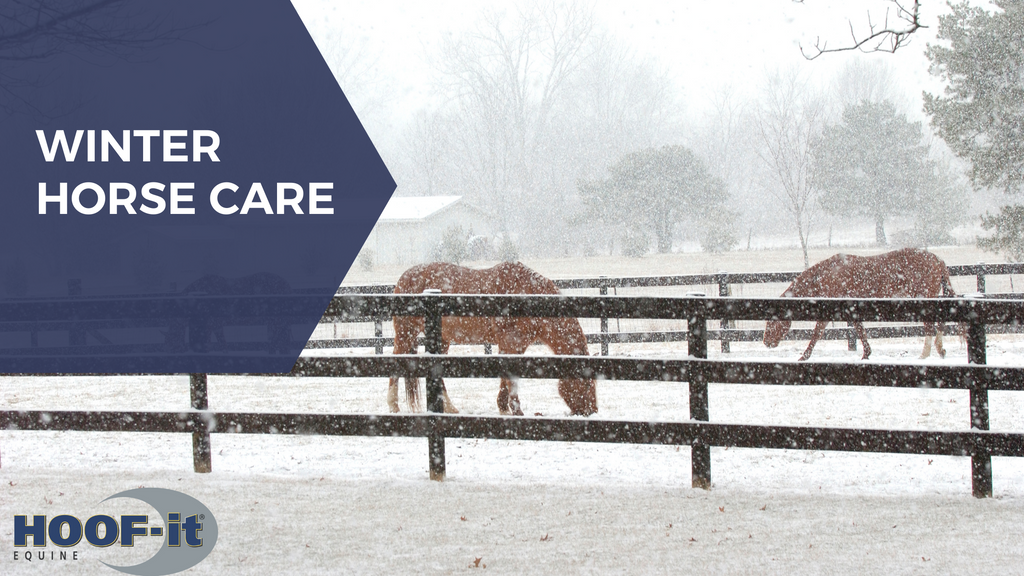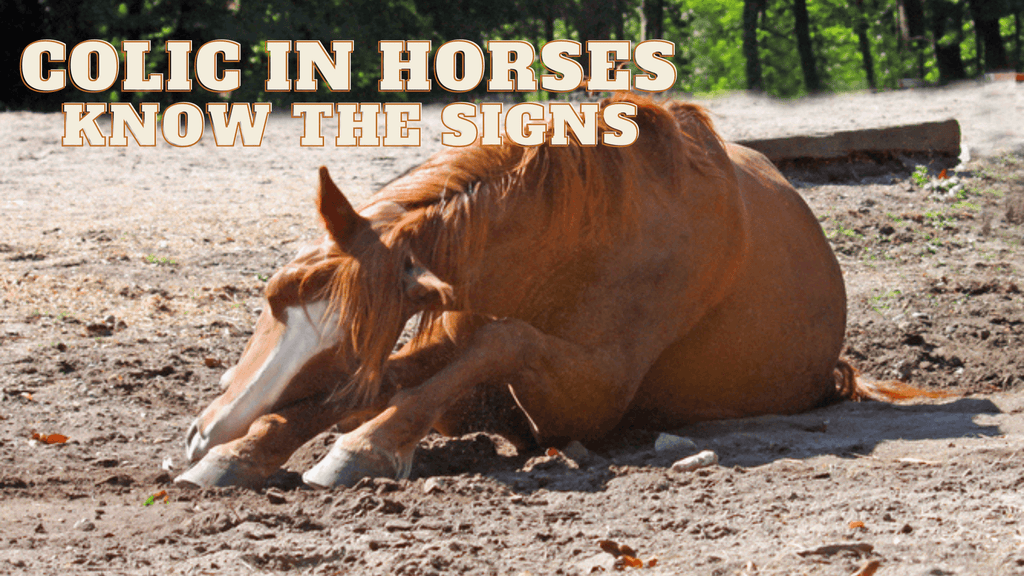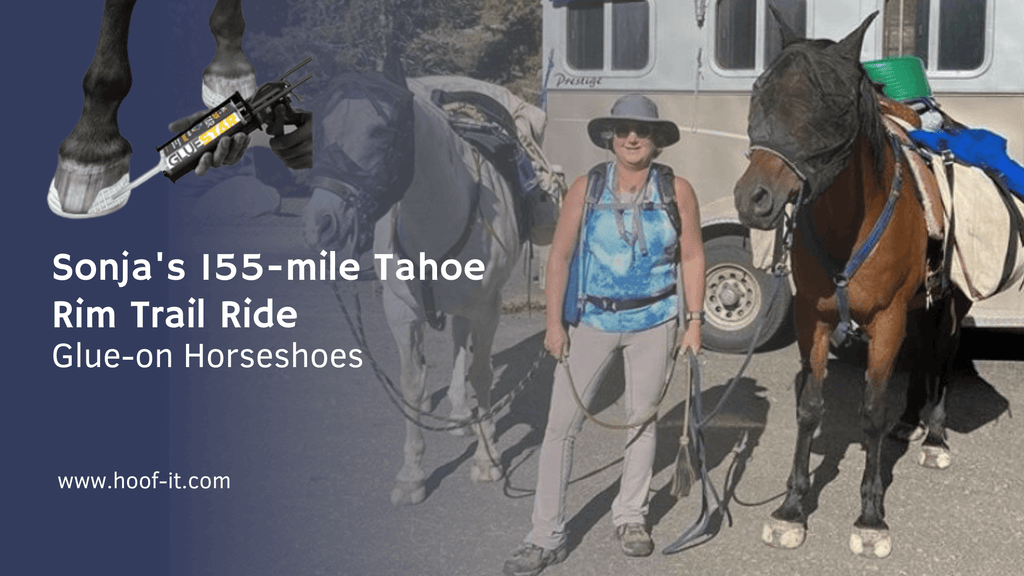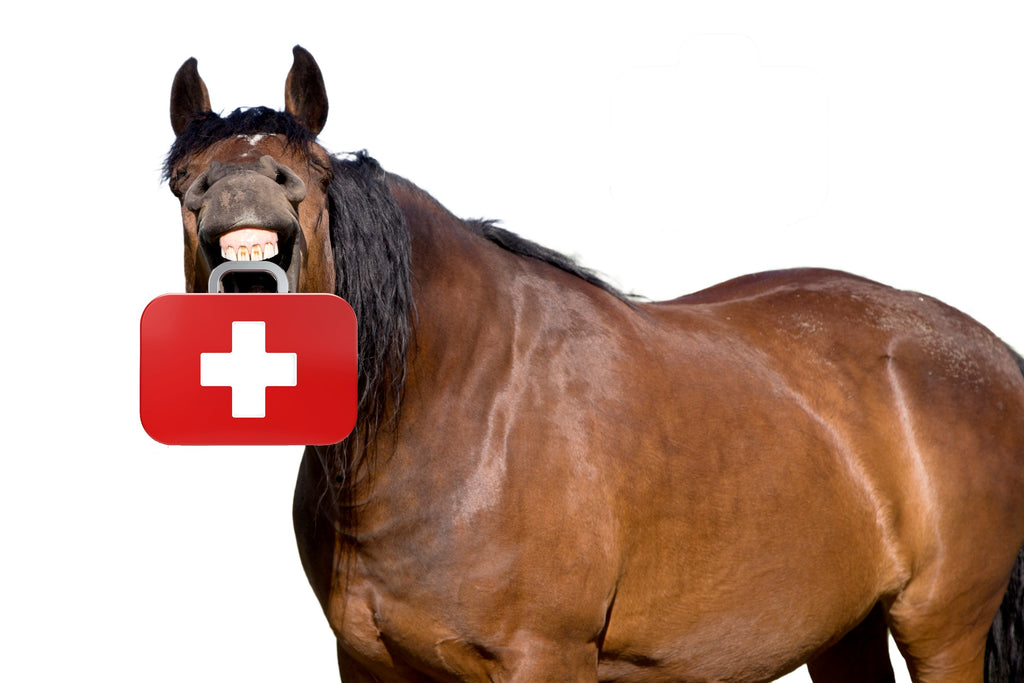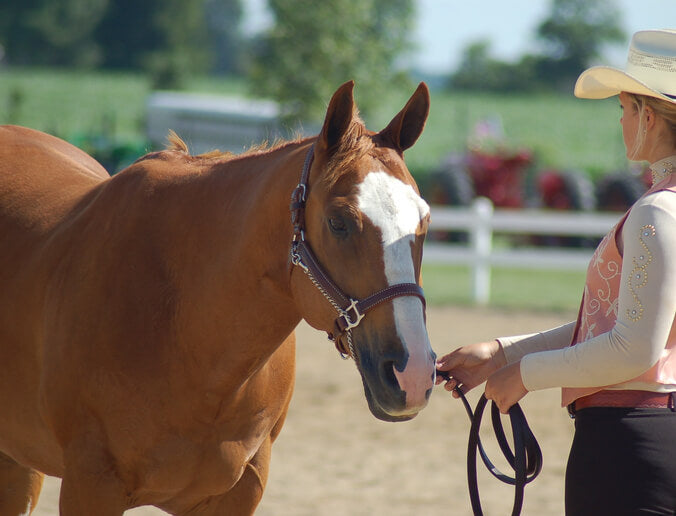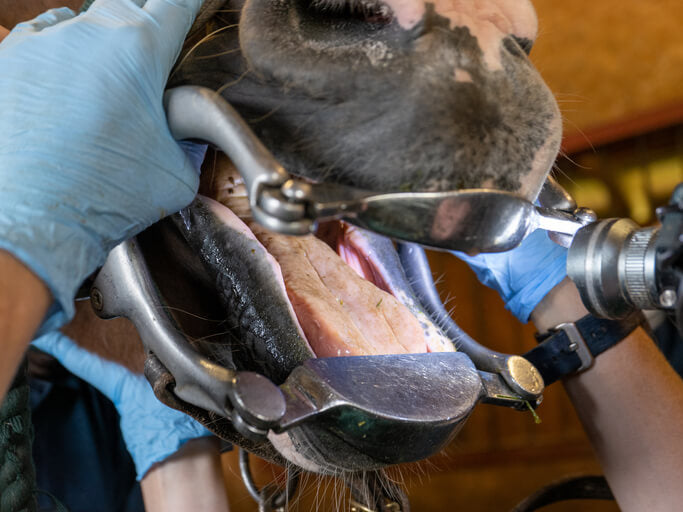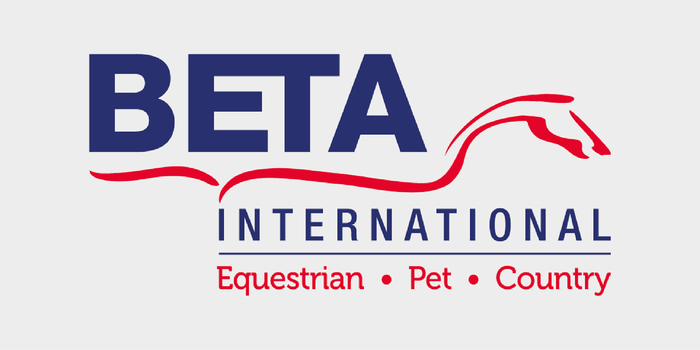HOOF-it Blog
Winter Horse Care
Horse Genotyping and Breed Testing
COLIC IN HORSES – KNOW THE SIGNS
Most likely when you hear the word colic, it sends chills down your spine or makes you stop in your tracks and think of stories you’ve heard. If you have never had a horse colic, most likely you have known someone who has. Colic is the general term for abdominal pain, but it’s also a sign of something else.
Colic is a sign that something is not right in your horses’ digestive tract. This means there are a lot of different signs and outcomes.
Only someone who knows this horse could tell you if he’s in trouble or just rolling around in the dirt. If he is getting up a down a lot or super restless, it could be a sign of colic.
TWO THINGS ARE CERTAIN WHEN DEALING WITH A HORSE THAT IS COLICING
One, seemingly mild case of an upset stomach can turn deadly very quickly and a seemingly obvious case of colic could turn out to be minor. This is what makes colic so dangerous.
Two, you must involve your veterinarian immediately to determine the seriousness of the issue. Only administer medications after talking to your veterinarian. Pain medications can mask the signs and make and accurate diagnosis and treatment plan difficult.
WHAT ARE THE SIGNS OF COLIC? Be aware that many of the signs of colic can look like totally normal horse behaviors.


It is important that you know your horses baseline temperature, pulse and respiration. Have your vet do a thorough examination to get these baseline numbers. Then, if something is wrong, you can compare their current situation to what they were when they were normal.

Rolling. Again, this a common behavior in horses. Normally your horse rolls to scratch themselves. In colic, it can be a sign of distress and your horse trying to relieve pain.
Turning to look at their flanks repeatedly. Horses will do this when in pain as if to find out what is going on back there.
Belly kicking. Most horses will do this in the spring and summer trying to get rid of flies. If there are no flies around, you might want to keep an eye on this behavior as it can indicate a response to pain.
Not eating or drinking. This is always a tell-tale sign that something is up with your horse. You can check for hydration by feeling your horse’s gums to see if they are moist.
Changes in manure output. Checking the volume, texture, consistency and frequency will tell you a lot about your horses’ health. If they stop going, they could be impacted.
Changes in urine output. Many horses that are in pain will urinate frequently, but in small amounts to try to relieve pressure.
Flehmen response. Most of the time this is a normal reaction to a smell, but sometimes can indicate that your horse is in pain.
Abnormal gut sounds. Do you know what is normal for your horse? Sometimes with colic your horses gut sounds will be louder and more frequent, but sometimes gut sounds go away with colic.
Fast pulse. This falls into the category of knowing what your horses’ normal vital signs are. An elevated heart rate and sometimes elevated respiration and temperature are a sign of colic.
Excessive sweating, immobility, or restlessness. If your horse doesn’t usually exhibit these behaviors and suddenly you notice any of these it could point to colic.
When in doubt with any of these symptoms and behaviors, it is best to call your vet and let them do a thorough examination so that you can be sure everything is ok.
Sonja's 155-mile Tahoe Rim Trail Ride with Glue-on Horseshoes
HOOF-it and the Hoofstar glue on shoe teamed up with Sonja this summer on a 155-mile Tahoe Rim Trail ride and a 50-mile endurance ride and here is how the Hoofstar performed.
 .
. 
 .
. 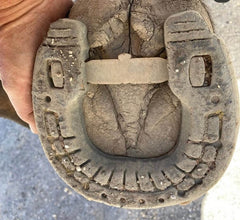
We spent some time with Sonja a week before her ride to deliver all the shoes and glue she would need for her trip, meet her two horses and help her fit the right shoes. The Tahoe Rim Trail ride would prove to be challenging to both her, her horses and our Hoofstar shoes.
Sonja was able to get a pretty good fit and great bond a few days prior to leaving for the Rim Trail ride. Her husband and other friends would check on her periodically to re-stock her with supplies any products she may need to keep her Hoofstars working for her along the way.

She experienced all kinds of terrain on the Tahoe Rim from dusty dirt trails to trails over run with shale and rocks and the occasional stream to cross. She confirmed that the shoe had worn pretty well and, in terrain that wasn’t super rocky, the shoes would last 40 plus miles easily, mostly getting worn on the toe.

She did however, lose a few pairs out there because the rocky terrain was very unforgiving and it really put these shoes to the test. The stress bending and twisting on the rocky trails would cause the side wall to separate from the shoe and the glue would separate from the hoof. Overall, she said she loved the shoes and would love to take them on her 50-mile endurance ride that she would be doing in August with Chip.
The Mary & Ann Memorial Endurance Ride outside of Bend Oregon took them about 9 hours to complete and led them through mostly dry desert and some rocky areas. Their ride consisted of three loops. The first was 24 miles, the second 15 miles and the third and final loop was 11 miles. Sonja glued on her Hoofstars three days before her ride and she’s happy to report that the shoes stayed on for the entire ride and performed perfectly for her! She gave the Hoofstar glue on shoes a thumbs up!
 .
. 
Essentials for your Equine First Aid Kit
Every horse owner at some time in their life will be in a situation where they will need (or wish they had) an equine first aid kit.
Having an equine first aid kit is a necessity when you own a horse. If you don't have one, here are some ideas to put in yours so that you will be prepared in an emergency. Having one for the barn and another for our horse trailer is a great idea so that you always have one on hand.
Here is a list of must-have basics that should be in every first aid kit:
1. Thermometer – preferably a mercury one. The thermometer should have a piece of string tied tightly to the end of it so it does not get sucked in rectally.
2. Scissors – Try to get special blunt end bandage cutting scissors so there are no sharp ends to harm a jumpy horse
3. Tweezers – you will need these for pulling out ticks or small splinters
4. A Twitch – there are some things your horse is going to object to so a twitch will help keep them calm
5. Lubrication – for using a thermometer
6. A metal bucket – metal buckets are easily sterilized and extremely useful
7. A rubber ground bucket – for soaking abscesses
8. Epsom salts – for soaking abscesses or pulling out infection when applied on a wet hot gauze pad and wrapped
9. Ice leg wraps – or ordinary gel ice packs
10. Bandages of all kinds: Lots of vet wrap, polo bandages, standing bandages, gauze bandages
11. Roll Cotton
12. Non-stick gauze – in varying sizes
13. Leg wraps – these are often used to wrap over initial gauze bandages for a larger wound and then secured by a polo or standing bandage
14. Diapers – great to cover an already bandaged foot and then put a duct tape boot over it. They can also be used as extra padding for a large wound to help stop the bleeding until a vet arrives.
15. Duct Tape – to secure bandages, or to make a protective boot
16. Animal Lintex – an amazing product that is applied slightly damp, left on under a bandage to draw out infection, can be used for abscess, and all kinds of other soreness.
17. Surgical Gloves
18. Rubbing alcohol – for cleaning utensils
19. Saline – for flushing wounds
20. Gentle Iodine
21. Hibitane – a gentle disinfectant that can be used straight out of a bottle or you can buy it in individual small scrubby packs.
22. Bute – A non-steroidal anti-inflammatory, Phenylbutazone is like aspirin for horses. It can be bought in an oral paste, a powder, or a solution that can be injected. It is used to provide pain relief and reduce fevers.
23. Flunixin – A non-steroidal anti-inflammatory, Flunixin is more aggressive at targeting inflamed tissue and is usually used in the treatment of colic pain, join disease, and to alleviate fevers. A side effect of administering flunixin is usually diarrhea, and as a result, can be used to help in cases of a suspected GI blockage.
24. Polysporin eye drops – this can be used for mild eye irritation. However, there are some serious eye conditions that must be seen by a vet as soon as possible, such as eye ulcers, uveitis, or corneal eye disease.
25. Zinc cream – can have many uses, one is treating horses for sunburn.
26. 60 SPF Sunscreen – for horses with pink skin that is exposed to the sun. Horses can get serious sunburns where they have pink skin (usually around the muzzle and eye area) make sure these areas are protected with sunscreen when they go outside.
27. Wound Powder – some wounds need to be left open to heal, blue wound powder is good to keep the flies out and helps dry up the wound.
28. Blue Kote Wound Spray – a bacterial spray that helps to heal
29. Hoof-it Hoofstar boots – These are an excellent temporary shoe if your horse loses a shoe.
It can be used without glue if you have a snug fit and some duck-tape.
Whether you are going out on the trail for a long ride or going into the show ring, you will want to make sure you have these essentials with you so that if anything does happen to your horse you are prepared to care for them.
Lost horseshoe? The Hoof Wrap Bandage is a great product to keep your horses hoof protected until your farrier can get out to replace the horseshoe. Hoof Wrap Brand Bandage

5 Reasons to Lease a Horse vs. Buying
So, you’ve decided that you want a horse for either equine sport or just because you would like to get out and trail ride, but have
you thought about whether you want to buy or lease? This blog
will give you 5 reasons why you may want to lease your first
horse.
Does your horse suffer from hoof infections or ailments?
Okay, so I have never been a big believer in topical hoof dressings. I have always felt like they are more for the human than the horse, a bit of a " horse owner feel-good" product. However, when I sampled "Hoof Doctor," I could smell the difference straight away. I knew I was not applying a typical hoof oil treatment, but I still was not sold. 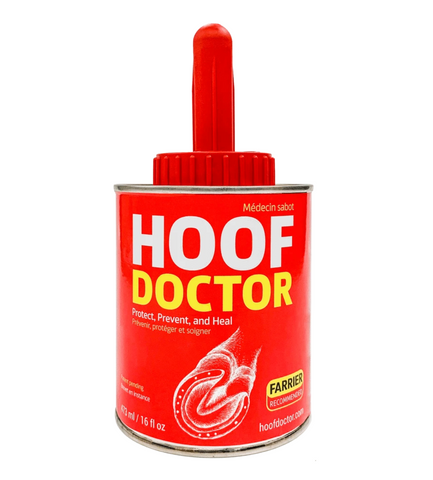
It was not until the following week that I would start to see the difference in my horse's sole and wall. My horse started with an average winter sole with signs of thrush in the crevices of the frog and a slightly soft sole from winter conditions. I applied Hoof Doctor to the soles and walls of his foot three times a week, and by week two, I could see, feel and smell the difference. His frog infection was totally cleared up. I am not sure how to describe the feeling of his soul, but I could clearly tell that the structure of his sole had changed. It had toughened up, and when I tapped on it with a hoof pick, I could actually hear and feel the difference. It was evident that the structure of his hoof had changed and became stronger.
The price point was a bit higher than your average hoof dressing, but you did not have to apply daily, and it actually did something and showed substantial healing benefits. This oil is not for human daily feel-good use. This hoof dressing treatment is for horses that have or are prone to hoof infections, thrush, or seedy toe. It is also for horses that are transitioning to barefoot or horses with soft or sensitive soles or horses with white line disease. If you are dealing with hoof issues such as these, I highly recommend Hoof Doctor.

Hoof Doctor is made in Canada and is based on All-Natural Ingredients:
- Birch Bark Extract
- Organic Omega-3 Oil
- Vitamin A & D
- Other 100% Natural Active Ingredients
Non-caustic formulation & no harmful or petroleum-based products.
Side Note: How about that hoof stand? Just love the new HOOF-it Blacksmith Pro in its vibrant yellow. =)
USING A VETERINARIAN VS. EQUINE DENTISTRY
Who should float your horse’s teeth? An equine dentist or your veterinarian?
As demand for proper oral care in the horse world has grown dramatically in the last twenty years, it is common to find non-veterinary equine dental technicians practicing in most areas of the country, but as demand increases, their practice has put them at odds with licensed veterinarians who believe equine dentistry is veterinary in nature and in the best interest of the horse’s welfare, should only be performed by an actual veterinarian.
HOOF-it Exhibits at the BETA International

BETA International Birmingham England
HOOF-it® lunches the new Blacksmith Pro at the BETA International Show.
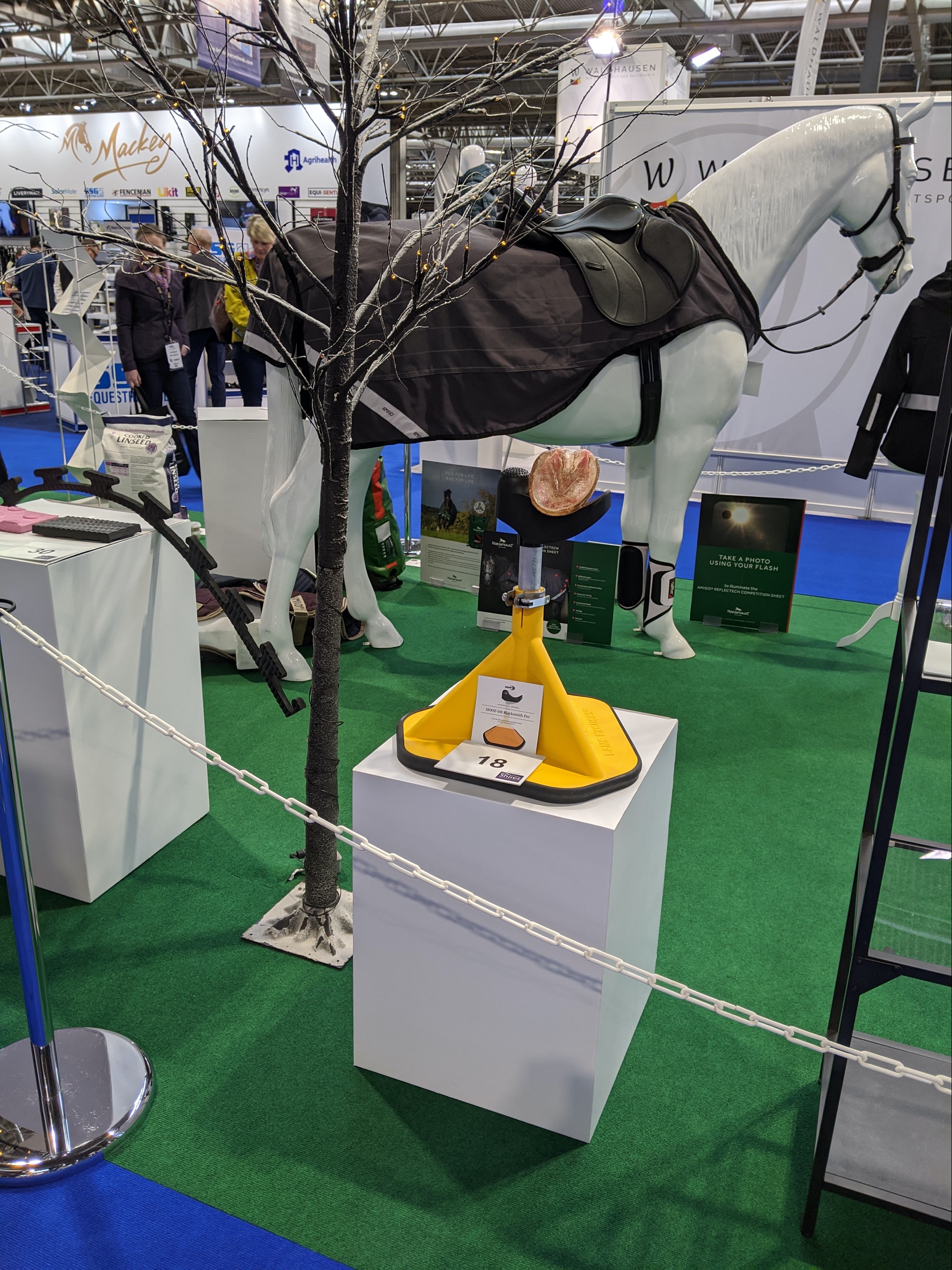
What a fantastic way to start the 2020 year. With the decline in US trade show fairs, my expectations are never too high anymore. In the past several years you can feel the drop in exhibitors as well as visitors. However, BETA (British Equestrian Trade Association) International did not disappoint. It was by far the most well run equine trade show I have ever attended. The staff was so lovely and supportive of all our vendor needs. I really can't say enough about my time spent at the BETA show and it was the perfect place to launch our new Blacksmith Pro. As Liz Benwell said, "BETA is for the trade by the trade." Not only did we meet new retail customers, but they also offered excellent trade talks, social media lectures, as well as equestrian fashion shows.
The response for using this HOOF-it® Blacksmith Hoof Stand to Apply horseshoe studs was a big topic. No one wants to bend over for that long to apply studs and then jump in the saddle. The fact that this hoof stand allows the horse to rest comfortably while you remove plugs, clean threads and then apply the studs makes this unit a must.
We have a container of hoof stands on its way to the United Kindom, so check with your local retailer mid-March because the HOOF-it Blacksmith Hoof Stands are on their way to the UK!

Olivia is applying studs before her big event. As you can see, she can bring the foot back and rest it comfortably in the cradle while applying horseshoe studs.

A farrier finishing the foot using the post to bring the foot forward. This makes the job easier and more comfortable for the horse and farrier.
